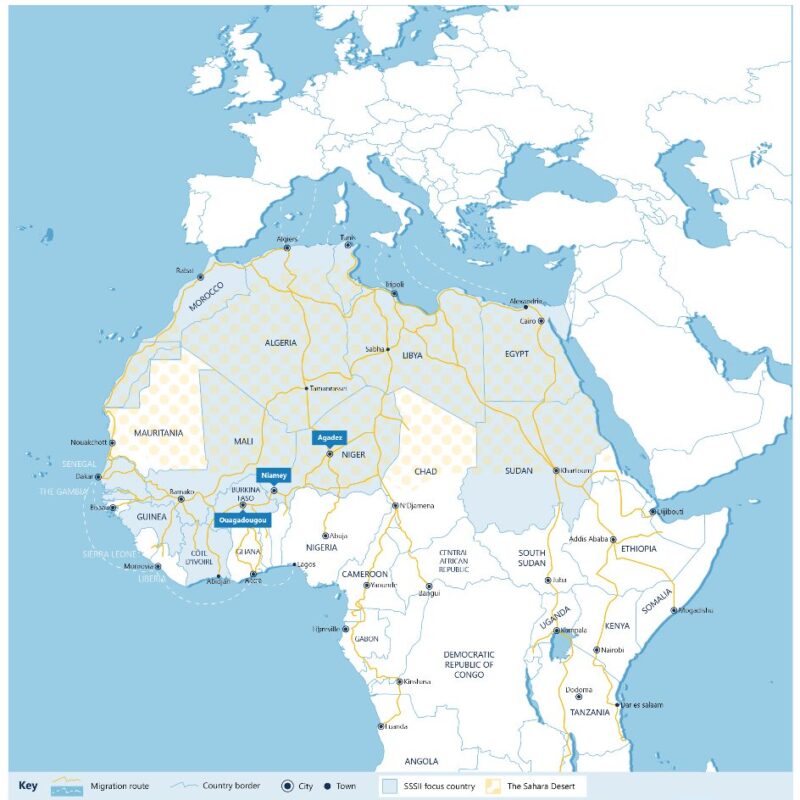The importance of Monitoring and Evaluation, Research and Learning to understand the implications of COVID-19 on vulnerable populations on the move
The importance of Monitoring and Evaluation, Research and Learning to understand the implications of COVID-19 on vulnerable populations on the move
Project Outputs
The outbreak of COVID-19 is anticipated to have severe consequences for migrants and refugees along Africa’s key migration routes linking sub-Saharan Africa with the Mediterranean, exacerbating existing risks to their physical and mental well-being. Our understanding of the impacts of the pandemic on migrants and refugees is still emerging.
Travel restrictions and border closures have made it increasingly likely that large numbers of migrants and refugees will be stranded in geographies where they have limited support networks and live in conditions characterised by overcrowding, increased climatic exposure, and poor sanitation. Weak local healthcare systems, already strained by existing health and disease challenges, will be ill-equipped to respond to high COVID-19 caseloads. Local political crisis and violent conflict will further compound the risks and threats to populations along the migration routes.
Migrants remain disproportionately at-risk of discrimination, stigma, and exclusion by host communities and punitive state authorities. Often these populations have limited access to critical information or knowledge of their rights. Travel restrictions will also limit channels for international support and protection for migrants, including the provision by external actors of primary healthcare, food and legal support. Thus, the COVID-19 pandemic is anticipated to further push vulnerable populations into poverty and make them increasingly food insecure.
Integrity is the Monitoring and Evaluation, Research and Learning provider for DFID’s Safety Support and Solutions Phase II (SSSII) programme, which seeks to protect vulnerable migrant populations along the Central Mediterranean Migration Route (see map) from harm. We assure and evaluate the technical delivery of interventions and provide rapid research and evidence to support humanitarian actors and migration policy makers make rapid adaptations to programming to provide to continued country assistance in changing operating contexts.
In response to COVID-19, as risks rise and assistance needs change, Integrity has adapted the Independent Monitoring support to continue to track programming while ensuring beneficiary safety and well-being. Integrity is also undertaking a series of research studies that will directly engage migrants and refugees to ultimately provide policy makers with insights into their needs, coping strategies, and experiences during the pandemic. This research will help understand the implications of COVID-19 on populations on the move and be used to design appropriate strategies to respond to them.
Tags
Algeria, Burkina Faso, Egypt, Guinea, Libya, Mali, Morocco, Niger, Senegal, Monitoring, Evaluation, and Learning,

Map: Central Mediterranean Migration Route